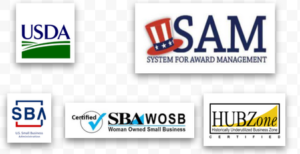Food brokerage constitutes a broad spectrum of services. Some brokers may specialize in the resale of specific food items. In comparison, others may only provide supply chain logistics and support. And yet, some food brokers may offer general or specific services, including the two just mentioned.
Leading food broker companies and our team at Marvell all have their perks and processes. With these various brokers and services available, it’s essential that you ensure, for example, that you hire the right Food and Beverage Broker to meet your company’s specific needs. And while any broker with a proven track record of success, which should be easily verifiable, can help you offload “unsellable” products, it takes the right Food Brokerage Service Provider to make you feel like you have the best partner in helping your business succeed, whether it’s a short term proposition, such as a spot or opportunity buy, or a longer term contract situation.
A qualified food broker, for example, can be a fantastic asset for Grocery Retailers. They can help you promote, sell, and even transport goods with more efficiency while at the same time helping you generate income on products and goods you might not be able to sell for one reason or another. One of the key value propositions of a legitimate, veteran Food Brokerage company is that they offer and can prove they have an extensive network of buyers for your products.
But to get all of the benefits that a Food Brokerage company can offer, you first have to find a Food Broker that is up to the task for your business— and that can be easier said than done. If you’re looking for Food and Beverage liquidators, for example, capable of working for your Grocery Store, Supermarket, Discount Store, or Convenience Chain, here’s how to narrow your options and make the right choice.

Choosing Retail Food Brokers for Your Grocery Store, Supermarket, Discount Store, or Convenience Store
Not all food brokerage service companies are created equal. Follow these suggestions to ensure you partner with the right food brokerage company regardless if you have short term or long term needs:
- Know What You’re Looking For
Decide if you need a jack-of-all-trades broker or if you’d be better served by a specialty broker—such as a company specializing in closeout or salvage food sales. This decision will primarily depend on the types of products you’re working with and the various challenges of the specific goods you need to move, such as short-coded or expired foods. Not all food brokerage companies specialize in these sorts of goods and products, which is a super-niche aspect of the food brokerage services industry. And while a large-scale firm could still be an asset, a broker with a more narrow focus may be the way to go if you’re not working with a traditional inventory. For example, Marvell Foods is the nation’s leading food broker, buyer, and trader specializing in seconds, surplus, salvage, opportunity, and spot buys. Further, Marvell Foods has earned a national reputation as a leader in short-coded or past “best use by date” products.
- Set Your Budget
Cost is one of the most significant factors to consider when hiring a food broker, so it’s better to iron out financial details ahead of time and know your limits and expectations. Figure out what you’re willing and able to spend (if you are a buyer), what you are willing to “sell your goods for” (if you are a seller), and whether you’d prefer to pay via a set rate or pay on commission. Food brokers all have their own set of fees and payment structures. Marvell Foods, for example, does NOT charge any upfront fees. The company only is paid upon a successful sale, and sometimes Marvell Foods can even include the cost of shipping concerning a sale. Shipping has become increasingly expensive due to inflation and rising fuel costs. Marvell Foods typically deals with Full Tractor Trailer loads to ensure a more cost-efficient transaction. However, every single deal is negotiated on a case-by-case basis.

- Ask the Right Questions
The more questions you ask of potential brokers, the better idea you’ll have about who’s a good fit and who’s not. Questions you should ask include:
- How long has the company been in business?
- Are they a “generalist” or “specialist?”
- If “specialist” what areas?
- Who are some of your customers?
- Who are some of your buyers?
- What are your rates and fee structures?
- How will you market my products?
- What are some of your big successes?
- Do you have any case studies and references?
Asking the right questions is vital to gather all of the information that you need to make your decision. Many companies will not reveal their specific buyers for obvious reasons, but a good “vetting conversation” should quickly reveal whether you are talking with a well-established broker, and their company, who is the real deal, or not. In terms of “marketing” products, this is crucial. Some companies are known for “email blasting” out notices. This approach is very bad and frowned upon as it devalues the brand. Some companies need to “bury” their goods in the market. Not all companies know how to do this. Marvell Foods is very big in the export business and as a result major brands can be assured that their brand integrity is maintained. Further, a robust website should be an essential factor in determining a company’s profile in the market.
Ready to Find a Food Broker?

The right food and beverage broker can make all of the difference for your Supermarket, Grocery Store, Big Box Discount Store, or Convenience Store chain. If you’d like to learn more about Marvell Foods and how we can help you with selling or buying seconds, surplus, or salvage goods, give us a call. We are a USDA Government Certified Supplier/Vendor, a member the U.S. SAM SYSTEM for Federal Contracts, a member of the U.S. Small Business Administration, a SBA WOSB – Women Owned Small Business and a Certified HubZone Business.

